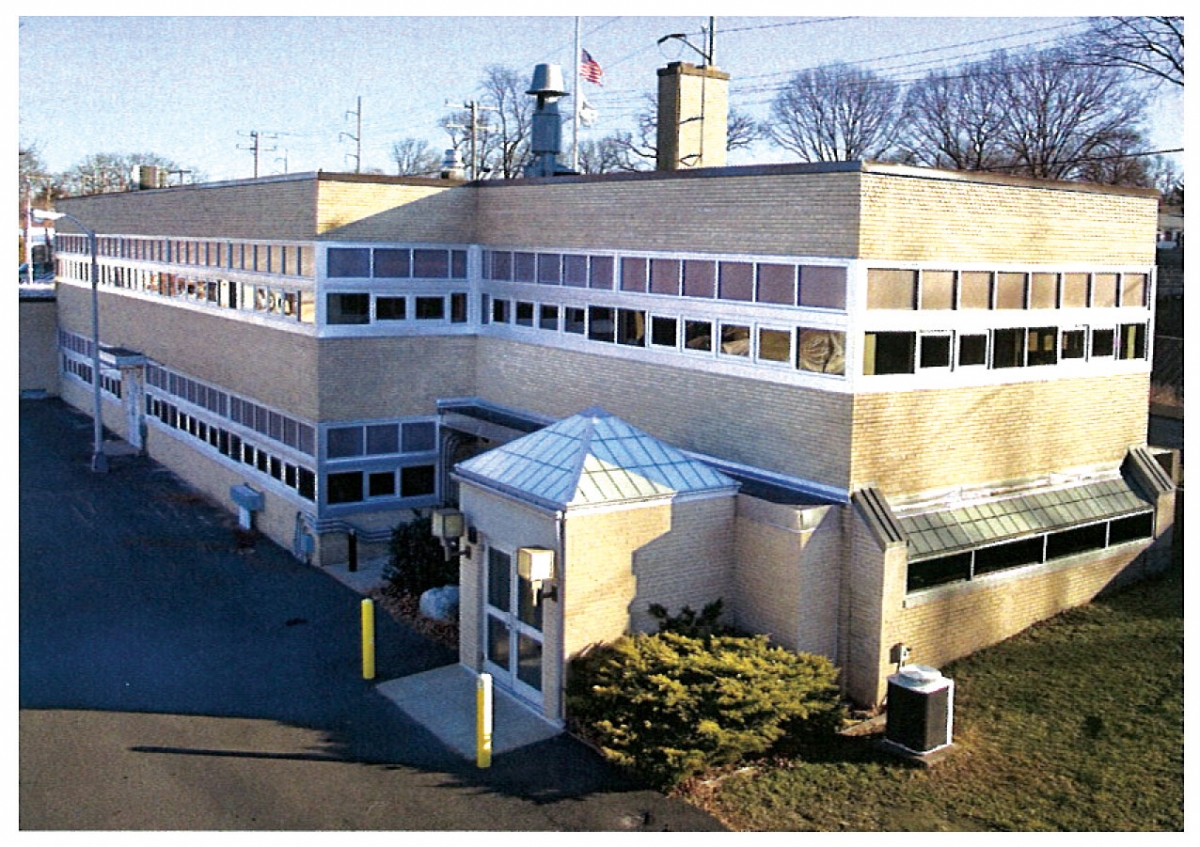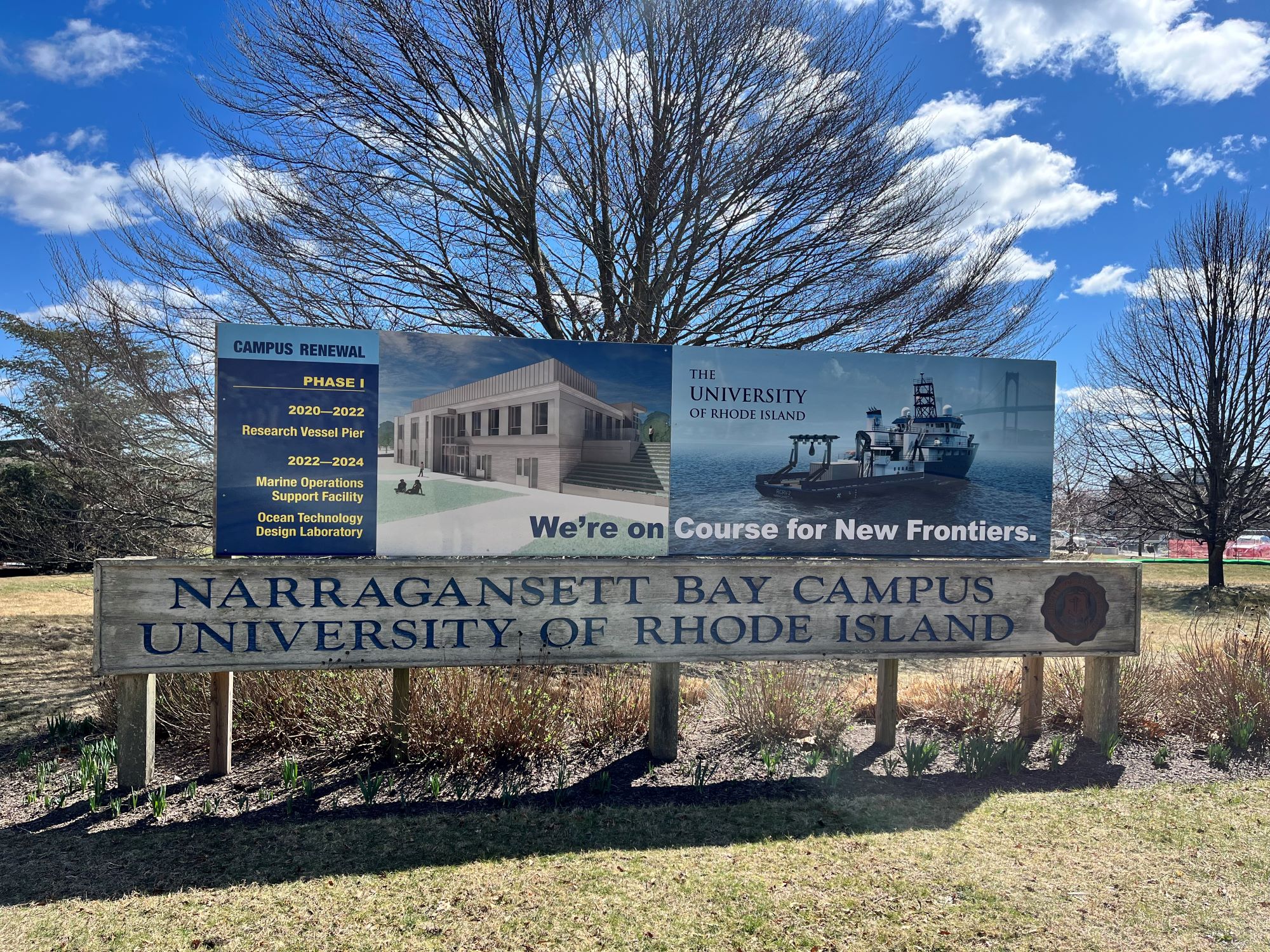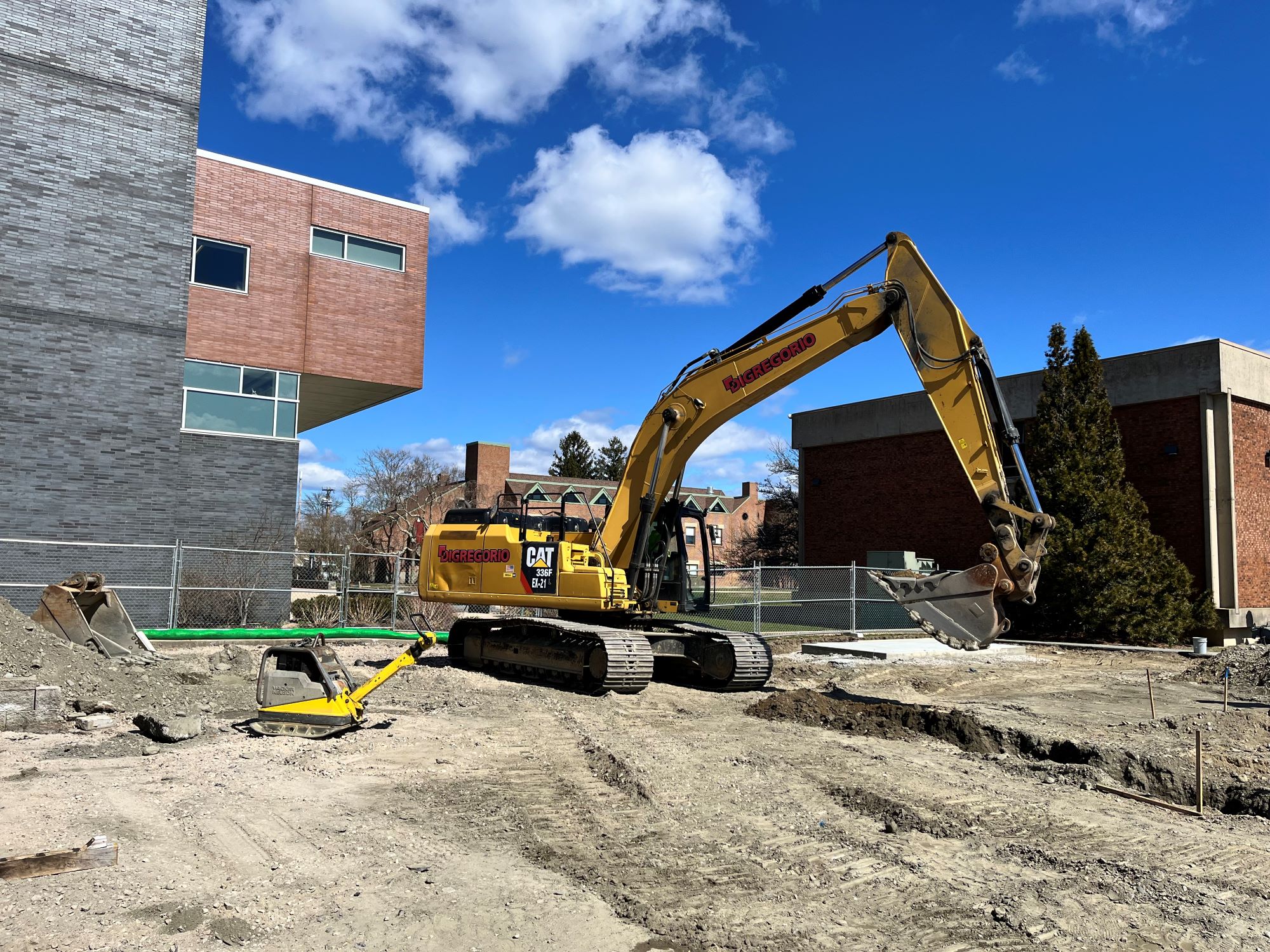Narragansett Bay Commission: The Unsung Hero Of Rhode Island's Waters
Ever heard of the Narragansett Bay Commission? If you're into environmental conservation, water quality, or simply care about the health of Rhode Island's natural resources, this is one organization you need to know about. The Narragansett Bay Commission plays a crucial role in protecting one of the state's most iconic landmarks – Narragansett Bay. But what exactly does it do? Let's dive in and find out.
Picture this: a pristine bay surrounded by lush greenery, teeming with marine life, and a vital part of the local economy. That's Narragansett Bay for you. However, maintaining its beauty and functionality requires constant effort, and that's where the Narragansett Bay Commission steps in. This commission isn't just another bureaucratic entity; it's a powerhouse dedicated to ensuring the bay remains a thriving ecosystem for generations to come.
As we explore the ins and outs of the Narragansett Bay Commission, you'll discover how they're tackling some of the biggest environmental challenges facing the region. From wastewater management to habitat restoration, the commission is at the forefront of efforts to preserve one of Rhode Island's greatest treasures. So, if you're curious about how this organization is making a difference, keep reading – you won't want to miss it.
Read also:Body Fit Training The Ultimate Guide To Transform Your Life And Body
What is the Narragansett Bay Commission?
The Narragansett Bay Commission (NBC) is a public agency established in 1961 by the Rhode Island General Assembly. Its primary mission? To protect and improve the water quality of Narragansett Bay and its surrounding watershed. But it's not just about cleaning up the water; the NBC also focuses on managing wastewater, promoting sustainable development, and fostering community engagement. It's a multifaceted approach that addresses both the environmental and socio-economic aspects of the bay's health.
One of the key functions of the NBC is operating the two largest wastewater treatment facilities in Rhode Island: the Field's Point Wastewater Treatment Facility in Providence and the Bucklin Point Wastewater Treatment Facility in East Providence. These facilities handle billions of gallons of wastewater each year, ensuring that only clean, treated water flows back into the bay.
But the NBC's work doesn't stop there. They also collaborate with local governments, businesses, and community groups to implement programs aimed at reducing pollution, restoring habitats, and educating the public about the importance of preserving Narragansett Bay. It's a collaborative effort that involves everyone from scientists to schoolchildren, all working together for the common good.
History of the Narragansett Bay Commission
Back in the early 20th century, Narragansett Bay was facing serious environmental challenges. Industrial pollution, untreated sewage, and agricultural runoff were taking their toll on the bay's ecosystem. Recognizing the need for action, the Rhode Island legislature created the Narragansett Bay Commission in 1961 to address these issues.
Over the years, the NBC has evolved to meet changing environmental needs. In the 1990s, they launched the Combined Sewer Overflow (CSO) abatement program, which aimed to reduce the amount of untreated wastewater entering the bay during heavy rainfall. This program was a game-changer, significantly improving water quality and earning the NBC national recognition for its innovative approach.
Today, the NBC continues to build on its legacy of environmental stewardship. With a focus on sustainability and community involvement, they're leading the charge in preserving Narragansett Bay for future generations.
Read also:Candler Hotel Atlanta A Timeless Gem In The Heart Of The City
Key Projects of the Narragansett Bay Commission
The Narragansett Bay Commission is involved in a wide range of projects aimed at protecting and enhancing the bay's ecosystem. Here are some of their most notable initiatives:
- Wastewater Treatment Facilities: As mentioned earlier, the NBC operates two state-of-the-art wastewater treatment facilities that handle billions of gallons of wastewater annually.
- Combined Sewer Overflow (CSO) Program: This program has significantly reduced the amount of untreated wastewater entering the bay, improving water quality and reducing health risks.
- Habitat Restoration: The NBC works to restore natural habitats, such as salt marshes and oyster reefs, which are vital for maintaining biodiversity in the bay.
- Public Education and Outreach: Through workshops, school programs, and community events, the NBC educates the public about the importance of preserving Narragansett Bay.
Impact on Water Quality
The NBC's efforts have had a measurable impact on the water quality of Narragansett Bay. Studies have shown a significant reduction in pollutants such as nitrogen and phosphorus, which contribute to harmful algal blooms and oxygen depletion. This improvement in water quality has led to healthier marine life and a more vibrant ecosystem overall.
But it's not just about the numbers. The NBC's work has also had a positive impact on the local economy. Cleaner water means better fishing, boating, and tourism opportunities, all of which contribute to the economic vitality of the region. It's a win-win situation for both the environment and the community.
Challenges Facing the Narragansett Bay Commission
Despite its many successes, the Narragansett Bay Commission faces several challenges in its mission to protect Narragansett Bay. One of the biggest hurdles is funding. Maintaining and upgrading wastewater treatment facilities, implementing habitat restoration projects, and conducting public education programs all require significant financial resources. Securing adequate funding can be a constant struggle, especially in times of economic uncertainty.
Another challenge is climate change. Rising sea levels, increased storm frequency, and changing weather patterns all pose threats to the bay's ecosystem. The NBC is working to develop strategies to mitigate these impacts, but it's a complex and ongoing process.
Finally, there's the issue of public awareness. While many people recognize the importance of preserving Narragansett Bay, not everyone understands the specific challenges facing the bay or the role that the NBC plays in addressing them. Increasing public awareness and engagement is an ongoing priority for the commission.
Climate Change and Narragansett Bay
Climate change is having a profound impact on Narragansett Bay. Rising sea levels are threatening coastal habitats, while more frequent and intense storms are increasing the risk of flooding and erosion. The NBC is actively working to address these issues through a combination of engineering solutions, habitat restoration, and community education.
One example of their efforts is the construction of living shorelines, which use natural materials such as oyster reefs and salt marshes to protect against erosion while also providing habitat for marine life. These projects not only help mitigate the effects of climate change but also enhance the overall health of the bay's ecosystem.
Community Involvement and Education
Community involvement is a cornerstone of the Narragansett Bay Commission's approach to environmental stewardship. They believe that educating the public about the importance of preserving Narragansett Bay is key to ensuring its long-term health. To that end, the NBC offers a variety of programs aimed at engaging people of all ages and backgrounds.
For example, their school programs provide hands-on learning experiences for students, teaching them about the science behind water quality and the importance of protecting natural resources. They also offer workshops and training sessions for adults, covering topics such as sustainable landscaping and rainwater harvesting.
In addition, the NBC hosts community events such as beach cleanups, nature walks, and educational seminars. These events not only raise awareness about the bay's environmental challenges but also foster a sense of community and shared responsibility.
Volunteer Opportunities
If you're interested in getting involved with the Narragansett Bay Commission, there are plenty of opportunities to do so. The NBC relies on volunteers to help with everything from habitat restoration projects to educational programs. Whether you're passionate about marine life, water quality, or community engagement, there's a role for you to play.
Some of the volunteer opportunities available through the NBC include assisting with beach cleanups, participating in citizen science projects, and helping with public education events. It's a great way to make a difference in your community while also learning more about the bay and its ecosystem.
Data and Statistics
When it comes to protecting Narragansett Bay, data is key. The Narragansett Bay Commission collects and analyzes vast amounts of data to monitor water quality, track pollution levels, and assess the effectiveness of their programs. Here are some of the key statistics that highlight the impact of their work:
- Since the implementation of the CSO program, the amount of untreated wastewater entering the bay has been reduced by over 40%.
- The NBC's wastewater treatment facilities handle approximately 50 million gallons of wastewater per day.
- Water quality in Narragansett Bay has improved significantly over the past decade, with a reduction in harmful algal blooms and increased dissolved oxygen levels.
Scientific Research and Monitoring
The NBC works closely with scientists and researchers to gather data on the bay's ecosystem. This includes monitoring water quality, studying marine life populations, and tracking changes in habitat conditions. By using cutting-edge technology and scientific methods, the NBC is able to gain a deeper understanding of the bay's health and identify areas where intervention is needed.
One example of their research efforts is the Narragansett Bay Long-Term Ecological Research (LTER) program, which has been collecting data on the bay's ecosystem for over 20 years. This program provides valuable insights into the long-term effects of human activities and climate change on the bay, helping to inform policy decisions and conservation strategies.
Future Plans and Goals
Looking ahead, the Narragansett Bay Commission has ambitious plans to continue improving the health of Narragansett Bay. Some of their key goals include:
- Upgrading wastewater treatment facilities to improve efficiency and reduce energy consumption.
- Expanding habitat restoration projects to cover more areas of the bay.
- Increasing public awareness and engagement through innovative education programs and community events.
They're also exploring new technologies and strategies to address emerging environmental challenges, such as microplastic pollution and the impact of climate change on marine life. With a focus on sustainability and innovation, the NBC is well-positioned to lead the way in preserving Narragansett Bay for future generations.
Conclusion
The Narragansett Bay Commission is a vital organization dedicated to protecting one of Rhode Island's most precious natural resources. Through their efforts in wastewater management, habitat restoration, and community education, they're making a real difference in the health and vitality of Narragansett Bay. But their work is far from over. As environmental challenges continue to evolve, the NBC remains committed to finding new and innovative ways to preserve the bay for future generations.
If you care about the environment, water quality, or simply want to make a positive impact in your community, consider getting involved with the Narragansett Bay Commission. Whether through volunteering, attending events, or supporting their programs, there are plenty of ways to contribute to this important cause.
So, what are you waiting for? Join the Narragansett Bay Commission in their mission to protect and preserve Narragansett Bay. Together, we can ensure that this beautiful natural resource remains a thriving ecosystem for years to come.
Table of Contents
- What is the Narragansett Bay Commission?
- History of the Narragansett Bay Commission
- Key Projects of the Narragansett Bay Commission
- Impact on Water Quality
- Challenges Facing the Narragansett Bay Commission
- Climate Change and Narragansett Bay
- Community Involvement and Education
- Volunteer Opportunities
- Data and Statistics
- Scientific Research and Monitoring
- Future Plans and Goals


